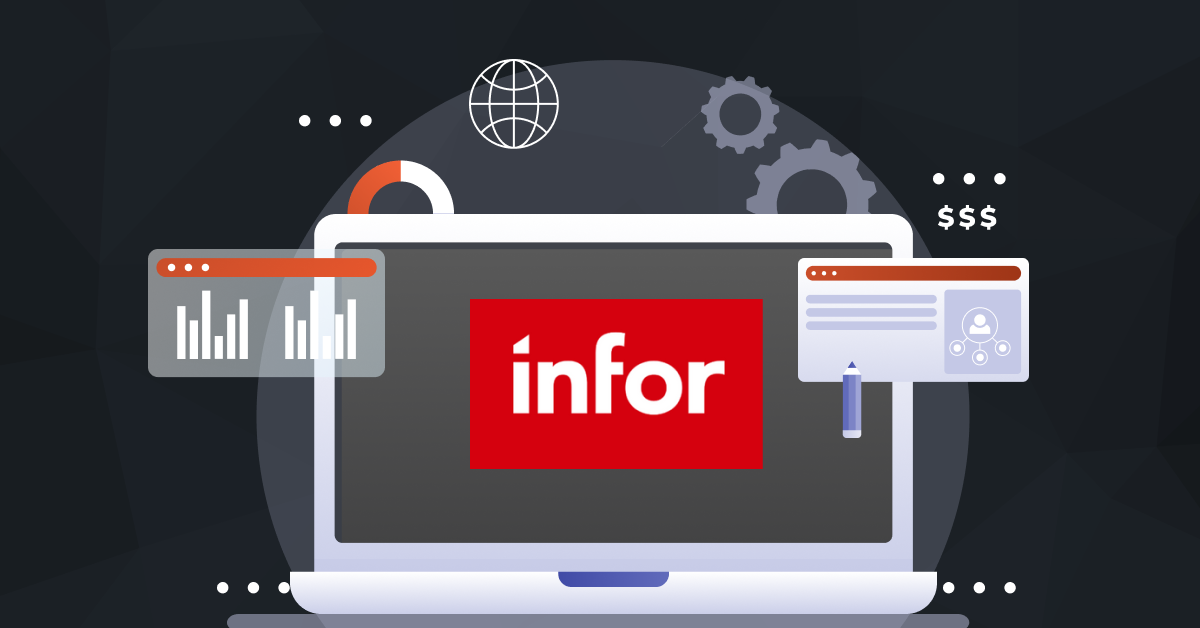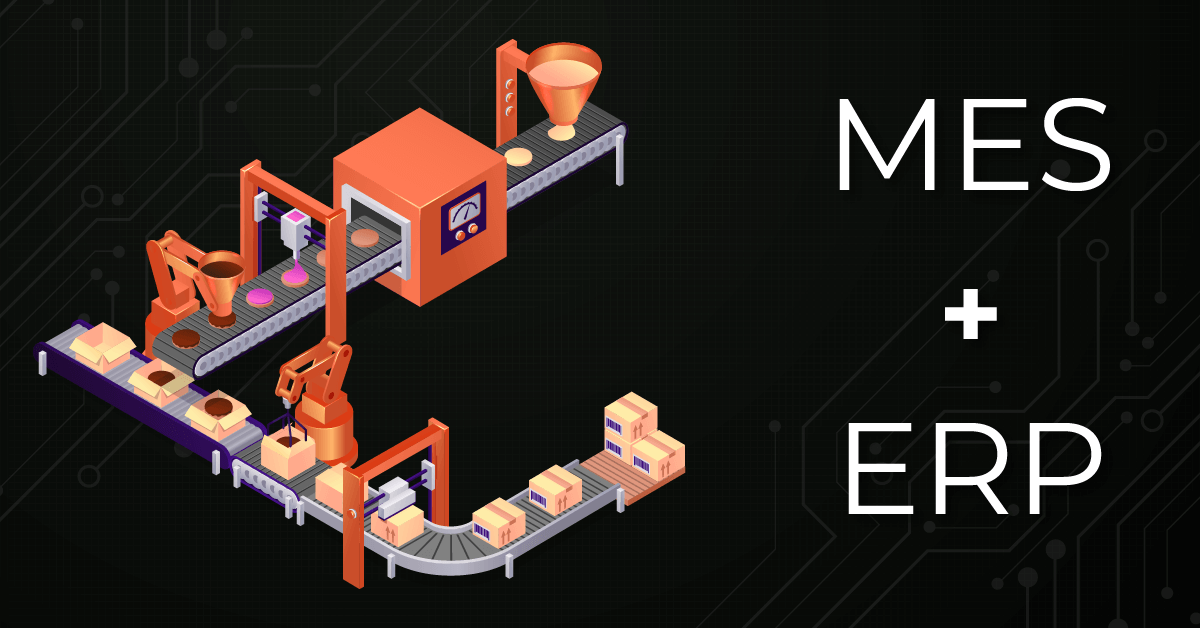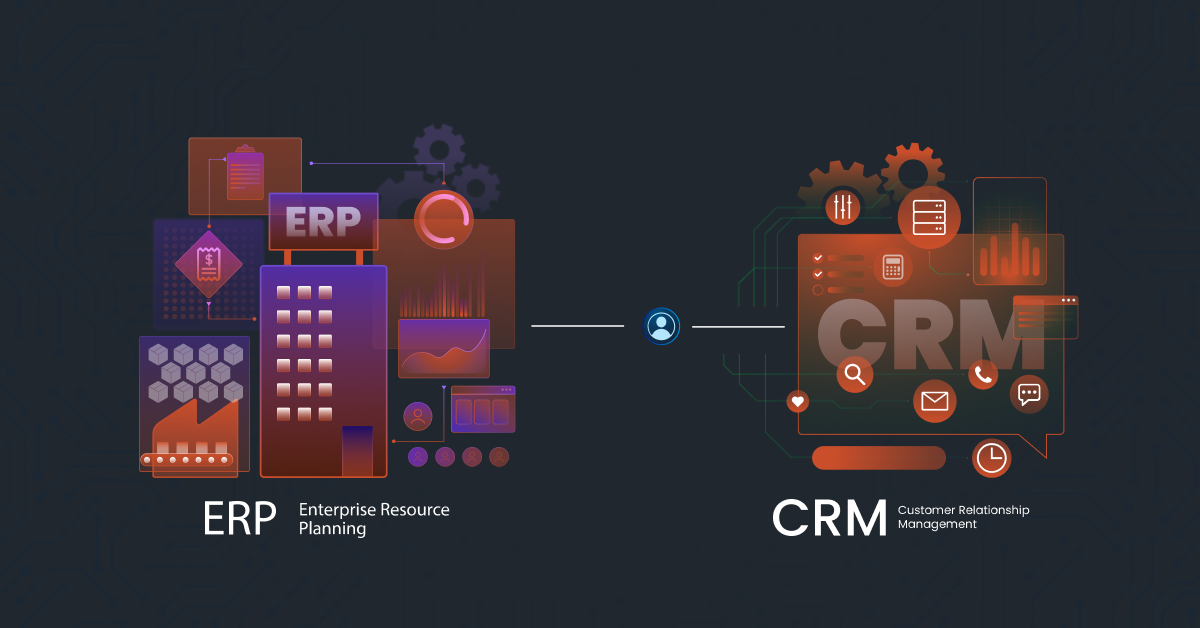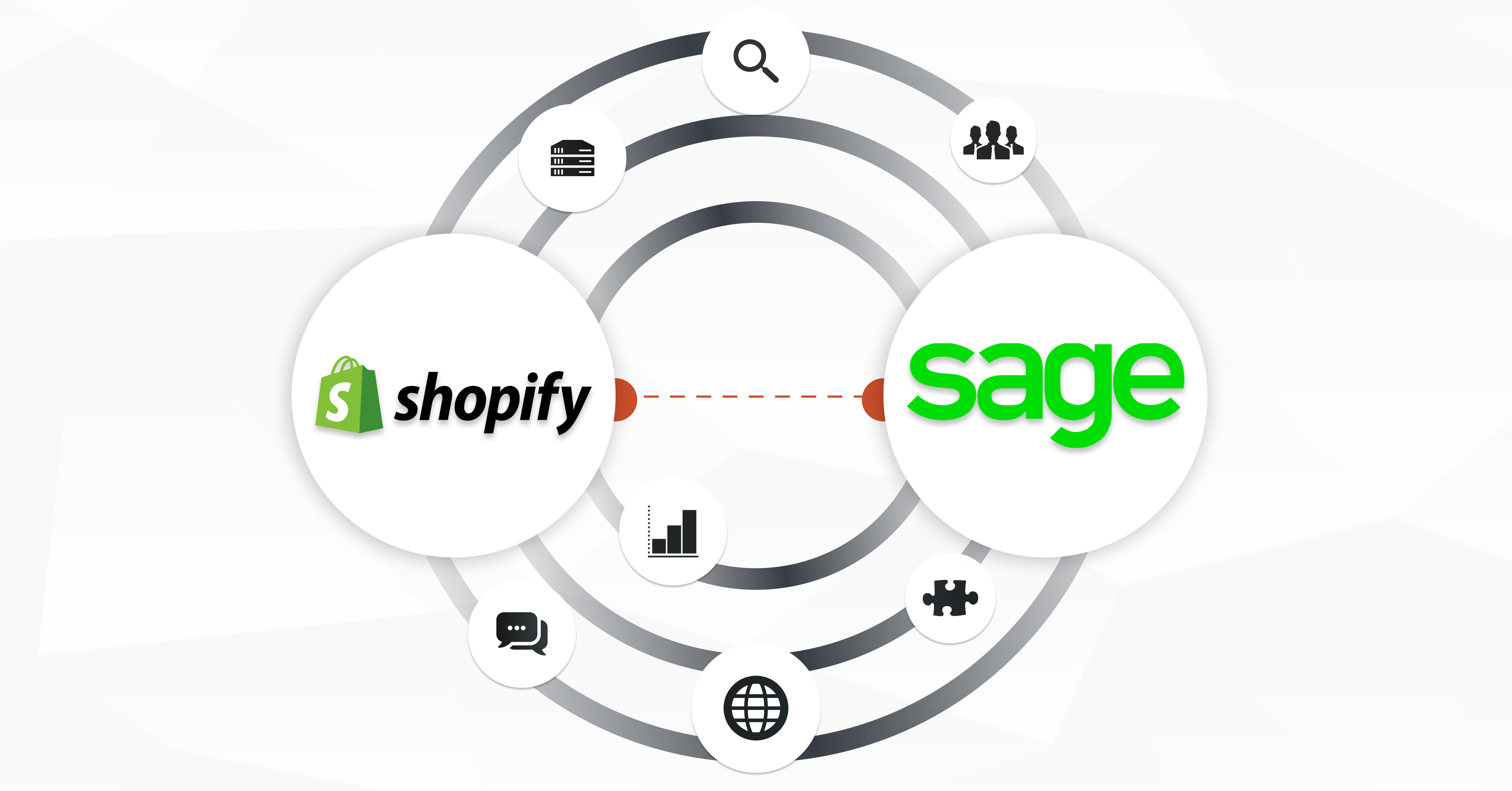Infor integration connects your Infor ERP solution with other business applications such as your customer relationship management (CRM) system, management information system (MIS), product information management (PIM) system, warehouse management system (WMS), ecommerce platforms such as Shopify or Magento, product lifecycle management (PLM) software, and many more. This can be done irrespective of the service provider in each case.
Integration ensures that information is shared in real-time and seamlessly between these systems, providing complete visibility and improving overall performance and efficiency.
Different Approaches to Infor ERP Integration
There are different approaches when it comes to Infor ERP integration but the choice depends on various factors including development resources, budget, applications to be integrated, etc.
Custom integrations using APIs
Many business applications have APIs or application programming interfaces, which define how systems communicate or exchange data with each other. Businesses can also develop their own core integrations wherein the developers need to match the application or software API to the existing Infor ERP.
Although this method offers many advantages in terms of customization it is both resource and time-consuming as developers need to understand every API documentation for building integration manually.
Vendor-built integrations
Such integrations are also known as native or out-of-the-box integrations. Many vendors do provide integration solutions to connect their systems with other applications. For instance, Infor offers its own middleware Infor ION (intelligent open network), which is a part of Infor OS, that supports integration between Infor and other third-party applications.
However, these integrations are relatively inflexible and only include common use cases, which may be a hindrance in case of customization.
Integration Platform as a Service (iPaaS) or middleware platform
iPaaS or middleware software such as DCKAP Integrator eliminates the need for costly custom integrations or inflexible native integrations. A cloud-based solution, such middleware platforms are low-code, scalable, flexible, supports extensive customization, and saves time and money.
Additionally, an iPaaS helps businesses create workflows that connect different applications without any need for installing hardware. The platform capabilities for the selected solution need to be matched with the business structure and key challenges.
Types of Infor ERP Integrations
Infor ERP integrations depend on your business needs but here are some common application integrations that you can leverage.
eCommerce Integration
eCommerce integration ensures a seamless connection between Infor ERP and your ecommerce platforms such as Shopify, Magento, BigCommerce, Salesforce Commerce Cloud, and many more.
Benefits:
- Track and make all critical data assets including customers, orders, leads, shipments, taxes, etc. available to your team or all relevant departments.
- Ensure real-time inventory updates in both front (ecommerce store) and back (Infor ERP) ends.
- Access to accurate, automated financial audits.
- Implement customer-specific and dynamic pricing options.
Business intelligence (BI)
- Share insights with your team, departments, or authorized personnel.
- Access advanced reporting options to make the most of your varied data sources.
- Discover new profitable opportunities and expedite decision-making.
Customer Relationship Management (CRM)
- Exchange data between CRM and Infor ERP seamlessly
- Get a complete, 360-degree view of your customers
- Access all relevant data related to sales, marketing, customers, etc. in one place
- Use centralized data to create personalized experiences and build relationships with your customers
Electronic Data Interchange (EDI)
- Reduce costs related to printing, document management, postage, storing, etc.
- Shorten the supply chain by connecting order data to the ERP system directly
- Reduce manual errors and time spent in calculating invoices
- Improve fulfillment process and hence business cycle speed
Also see: Navigating EDI Integration: A Complete Guide
Product information management (PIM)
- Expedite data transfer and the sharing of product information with distributors
- Ensure up-to-date stock information and inventory status across multiple platforms or product pages
- Share the right pricing information with the right customers
- Rescue product return rates and improve speed-to-market
Key Benefits of Infor Integration
Infor customers can ensure data integrity and a single source of truth for the entire organization via integration. Here are some of the key benefits.
Reduced errors and complete process automation
Manual data entry, which is a major challenge across businesses, is inefficient, time-consuming, as well as prone to errors. Consider this scenario—error-prone data entry may result in slow lead assignment to the sales team, wrong prices of products, supply chain delays, or even production delays, resulting in revenue loss.
With Infor integration, you can easily automate various business processes such as purchase order processing, customer support & management, inventory management, accounting, and much more.
For instance, following integration, when any sales order is placed on your ecommerce platform, customer and order details are automatically shared with the ERP to ensure a seamless shopping, transaction, and order fulfillment process.
Informed decision-making with centralized data
As organizations grow, so do the users and data. There is a huge difference between having vast amounts of data and having high-quality centralized data that provide useful insights, which is important for success.
Integrating Infor ERP with other business applications ensures that all information pertaining to customers, orders, sales, shipments, delivery, etc. is accurate, updated, and accessible to everyone.
This helps in building better customer experiences because all departments can access real-time data from a single location, meaning there is no unnecessary waiting time. Additionally, data accuracy and transparency support timely and profitable decision-making.
Enhanced customer experiences
Personalization has been the mainstay of better customer experiences. It comes as no surprise that over 75% of the respondents of an Accenture survey state that they are investing hugely in real-time customer engagement. In today’s world, businesses should not just rely on one channel but create an enhanced omnichannel experience.
With ERP integration, businesses can extract useful insights into customer behavior and preferences to create more personalized customer experiences, gaining a competitive edge.
In fact, many experts believe that businesses that are able to leverage their ERP for intelligent customer engagement will succeed in the years to come.
Best Practices for Infor ERP Integration
- Have a solid integration plan in place with the buy-in from your team and stakeholders. When working on the plan, figure out why you need integration, what information or data you want to exchange, the current gaps, etc. It is advised to map your use cases and the frequency. Make sure to also consider edge cases.
- Be prepared for changes in routine processes and keep your employees, colleagues, and management informed. Transparent communication is a must during the integration project.
- Follow good data management practices for smooth integration. Make sure your data is clean, normalized, and validated, removing any duplication. Identify who has access to which data and take appropriate measures for personal data security.
Why Choose DCKAP Integrator for Infor Integration
DCKAP Integrator helps you control the flow of data between different systems and applications without any programming or development efforts. With no manual synchronization, you save money and time to focus on driving your business to success.
Here’s why DCKAP Integrator is the preferred middleware when it comes to Infor integration:
- Connect Infor ERP with a wide range of applications including CRM, ecommerce, shipping, BI, etc.
- Verify your integration connection with just one click
- Get complete control over custom-field mapping for data flow. Also, explore batch and dynamics sync options.
- Ensure faster integration with pre-built integrations using plug-ins
- Get real-time alerts for any integration failures
- Get regular feature upgrades and much more!
To know more about DCKAP Integrator and how we have successfully helped distributors get the most of an Infor integration, get in touch with us today!
Contents




